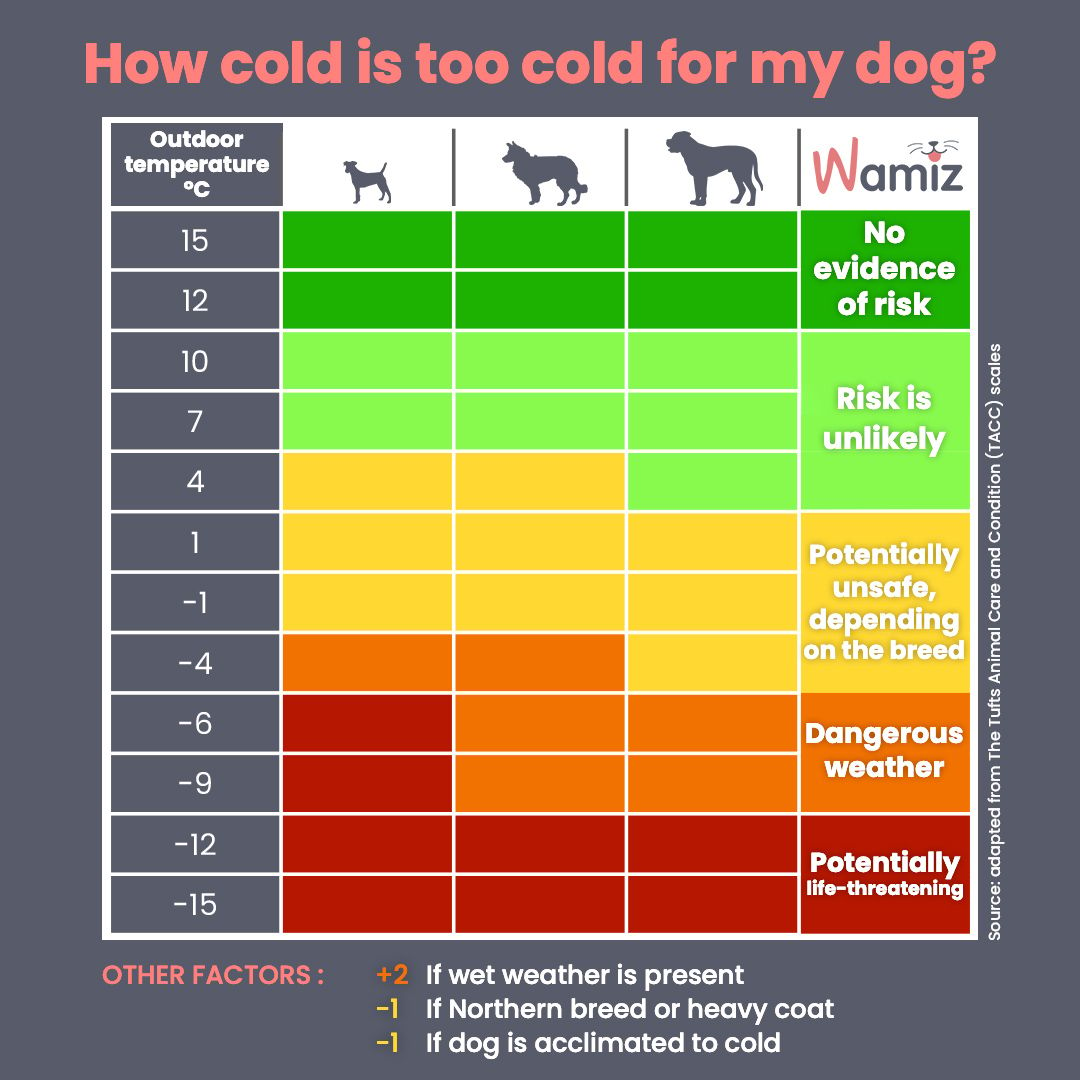Most people know the dangers of walking their dogs in the summer: the heat, the burning pavement, the dehydration...but walking your dog in the winter can be just as dangerous.
Indeed, depending on your dog’s size, age, coat, and health, cold temperatures could be detrimental to their well-being. Before you step outside during these colder months, consider whether it’s safe for your pup.
Is it OK to walk dogs in cold weather?
It is OK to walk your dog in cold weather. In fact, walks are very important for your dog’s mental and physical health, so you shouldn’t let the cold weather stop you from going out. However, knowing how cold is too cold for your dog to handle is important so you can prepare for and shorten the walks accordingly.
Taking dogs out in cold weather: What to consider
Is it too cold to walk your dog? Unfortunately, there is no “one size fits all” answer to this question. It depends on several factors.
Firstly, what size is your dog? Small dogs typically don’t fare well in the cold, while medium-sized and large dogs can withstand it better. However, this is a generalisation and, of course, depends on the breed. A small Alaskan Klee Kai will withstand the cold better than a large Greyhound.
That brings us to the second factor to consider: what type of coat does your dog have? Short, single-coated dogs such as Dobermanns or Italian Greyhounds are much less comfortable in the cold than double-coated breeds such as German Shepherds or Golden Retrievers. Plus, some breeds are actually built for the cold, like Huskies or Samoyeds. Though they’re on the smaller side, their thick coats ensure complete protection from the elements.
You must also consider your dog’s age. Older dogs will struggle with the cold more than younger dogs. Health is also a factor. If your dog has any underlying health issues such as diabetes or a heart murmur, for example, they are more at risk of suffering from the cold.
Finally, you should remember that temperature is one thing - but feel is another. Windy or humid days will feel much colder than bright, sunny, dry days. On these days, it is best to keep your walks short.
What temperature is too cold to walk a dog in the UK?
As you may have gathered from the above, there is no single temperature that would apply to all dogs. However, as a general rule, this is what you should consider:
At temperatures under 0°C, you should be extra vigilant when taking your dog for a walk. If you own a short-haired breed, wrap them up in a warm, comfortable doggy coat. If they’ll tolerate it, you can also put booties on your dog’s paws to protect their pads from the snow and salt on the sidewalk. Prioritise midday walks (when it’s warmer), than early morning or late evening walks (when it’s significantly colder). In any case, you’ll have to shorten your walks. Instead of going for one long walk, go for several short walks throughout the day.
At temperatures above -4°C, medium-sized to large dogs can be walked for 30 minutes at a time. Small dogs should only be walked for 15 to 20 minutes. Any temperatures below that are a health risk for your pet. On very cold days, it’s better to skip a walk once than to risk hypothermia. Remember to always factor in the wind chill and how it actually feels!
These temperatures are luckily very rare in the UK. However, if you’re reading this from the US, Canada or other cold parts of the world, please be very careful. When it’s under -18°C outside, you should not be walking your dog at all (unless your dogs are, of course, well-adapted snow dogs).
Most importantly, know your dog and how to understand them. Most dogs will let you know when it’s too cold outside. They may simply stop walking or pull back towards home. If that’s the case - listen to your dog!
Dog walk temperature chart UK
This temperature chart will help determine whether it's too cold to take your dog for a regular walk.

How can I tell if my dog is too cold?
One of the first signs of hypothermia is shivering. You may also notice your dog taking a hunched posture or walking on three legs. If your dog shows any of these signs, take them inside immediately. Wrap them up in a warm blanket and watch them closely. If your dog becomes lethargic, weak, or starts to breathe more slowly, you should contact a vet.
Also, watch out for signs of frostbite. Look at the tip of your dog’s tail, ears and paw pads. If they look blue, contact a veterinarian immediately.
Thankfully, winters tend to be quite mild in the UK. But better to be safe than sorry. Keep a close eye on your pups this winter, and stay safe!



